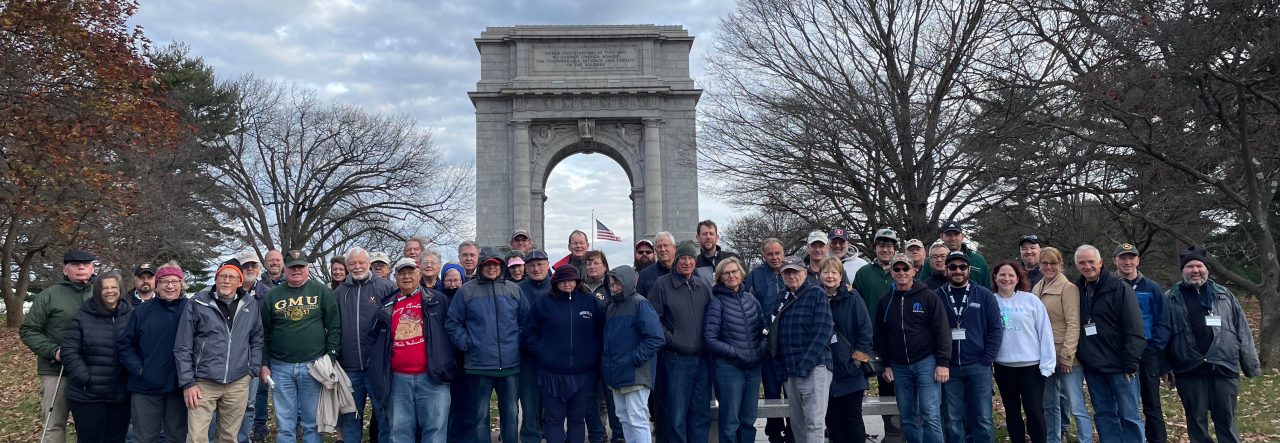When you mention the name “Charles Lee” in many Revolutionary War circles, one immediately thinks of Maj. Gen. Charles Lee. Though there was another Charles Lee and it can be argued provided more contributions to the United States than the British born military general.

Charles Lee was born in 1758 on his father’s plantation Leesylvania in Prince William County, Virginia. The 2,000-acre farm that sat on the Potomac River and neighbored other Potomac River families such as the Fairfaxes, Washingtons and Masons. Charles’ father, Henry Lee II, a political colleague and friend of George Washington, Charles was one of eight siblings and five males that would solidify the Lee family’s role as leaders in politics and society.
Like his other brothers, Charles was encouraged to receive a good education and he attended the College of New Jersey, (now known as Princeton University) graduating in 1775 (two years after his brother, Henry “Light Horse Harry” Lee). Unlike his brother Harry, Charles was not focused on a military life style, though he held a commission in the U.S. naval office for the Potomac River for a short time before moving to Philadelphia to study law. He was known as a reckless spender and free spirit. Frequently asking his father for more funds, Henry Lee II asked his son to focus on “application and frugality.” By 1781 he was finally admitted to the Virginia bar and began to practice law in northern Virginia.
A staunch Federalist like the rest of his family, Charles was named as Collector for the

Port of Alexandria in 1789 and served until 1793. He also served a quick stint in the Virginia General Assembly from 1794-1795. He also served on the boards of the Alexandria Academy, Potomac Company and the Bank of Alexandria. Charles’ brother, Richard Bland Lee, served as a Congressman from 1789-1795 and helped broker the deal to move the new Federal capital to the banks of the Potomac River. His Federalist beliefs led to his defeat as the new party of Thomas Jefferson, the Democratic – Republican, began to grow across Virginia. Charles’ other politically active brother, “Light Horse” Harry Lee became Governor of Virginia and a staunch political opponent of Jefferson. The Lee’s of Virginia had established themselves as the “anti-Jefferson” leaders of the state.
Lee began to make a name for himself by expanding his law practice beyond local county courts to state and Federal cases, helping set many legal precedents in the new national government. His experience and close family connection to George Washington led to his appointment by the president to the position of U.S. Attorney General in 1795.
Washington did not seek out a third term and left office in 1797. Lee was fortunate to have the respect of John Adams who decided to keep him on as his Attorney General as well. Adams hoped by having a Virginian as a close advisor he could combat the growing anti-Federalist sentiment growing in that state behind Thomas Jefferson’s encouragement. Although Jefferson was serving as Adams’ Vice President, making a very difficult working relationship.
In 1800 John Adams lost a very contentious election to Thomas Jefferson and near the end of his term in 1801. To influence the Federal courts, Adams appointed what has been called the “midnight judges,” so named as their appointments came prior to the stroke of the midnight hour when Adams’ presidential term was set to expire. The Jefferson Administration refused to deliver the commissions to the over 50 judicial appointments. Charles Lee was one of these “midnight judges” and his judicial position was held up in court and led to one of the most important Supreme Court cases, Marbury vs. Madison. Eventually these judges were not seated and the case established “judicial review” for the Supreme Court (giving the Supreme Court the authority to strike down Federal laws based on their Constitutionality). Lee did serve one year as a Circuit Court judge before retiring from public life to run a private law office. His political connections allowed him to land clients such as Aaron Burr and Samuel Chase. In an odd twist of fate, President Thomas Jefferson offered to nominate him to the Supreme Court, but Lee declined the offer due to his family obligations.
By 1803, Lee was living in rural Fauquier County near modern Warrenton, Virginia. His farm, called Leeton, was a long time Lee family property (the home still stands south of Warrenton). His wife passed away in 1804 and left him with six children. Lee sought out a private life and unlike his brothers Richard Bland Lee and Henry “Light Horse Harry” Lee, he never enjoyed politics. He died at Leeton on June 14, 1815 at the age of 57.

Remembered by many legal scholars for his contributions as one of the founding attorney generals, Charles Lee is often overlooked by his more famous family members and the former British general of the same name (though not related). Much like his life, today his grave often goes unnoticed. Most visitors to the Warrenton Cemetery are there to see famous Civil War personalities, such as John S. Mosby. But not 20 yards from Mosby’s grave, sits a simple stone with no special marking. It is the final resting place of Charles Lee, a man who helped found the Federal judiciary and was surely George Washington’s “favorite Charles Lee.”

Fantastic items from you, man. I’ve be mindful your stuff prior to and you are simply extremely great.
I actually like what you have received right here, really like what you are stating and the way in which wherein you assert it.
You are making it entertaining and you still take care of to keep it wise.
I cant wait to learn far more from you. This is actually
a tremendous site.
LikeLike